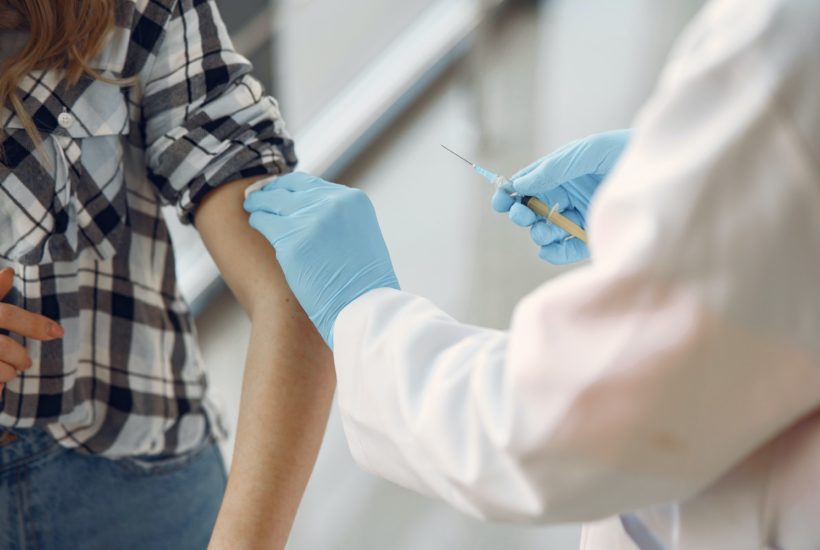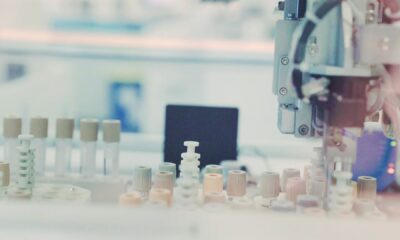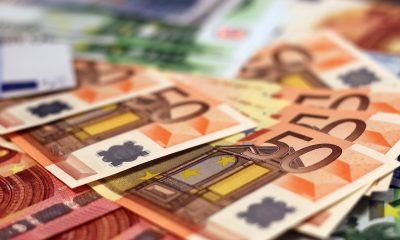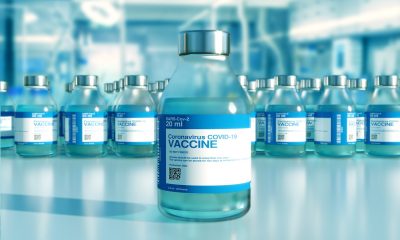Biotech
Biotech companies are getting closer to find the eagerly awaited COVID-19 vaccine
Moderna agreed to sell its coronavirus drug at a “pandemic price” of $32-37 per dose.The biotech company registered losses of $240 million in the first half of 2020, which means a 10% decrease in its red numbers compared to the first half of 2019. The pharmaceutical group Bayer recorded a negative impact due to the costs of out-of-court settlements for glyphosate from the US company Monsanto.

The biotech company Moderna is getting closer to finding the COVID-19 vaccine. The CEO of the company, Stéphane Bancel, has announced that Moderna has received “deposits of about $400 million for potential deliveries of the coronavirus drug until July 31st. In the same vein, the U.S. company has reported that it is committed to selling the COVID-19 vaccine at a “pandemic price” of $32 to $37 per dose. “We are working with governments around the world to ensure that the vaccine is accessible regardless of ability to pay,” Bancel said.
The company explained that the price of the drug will depend on the volume requested by each country and will be lower for those requesting large volumes of doses. This amount is above the $19.5 announced by Pfizer for the vaccine together with the German company Biontech. Both their trial and Moderna’s are already at the beginning of phase 3 to certify the reliability and safety of the vaccine.
Find out how close are biotech companies to find the vaccine that would put an end to the coronavirus pandemic and read the most important finance news with our companion app, Born2Invest.
The company’s turnover reached $74.7 million, while investment in innovation and development was $267 million
Moderna registered losses of $240 million in the first half of 2020, which means a 10% decrease in its red numbers compared to the first half of 2019, according to the company. In this period, the laboratory’s turnover reached $74.7 million, 157% more than in the first half of the previous year.
The company’s investment in innovation and development was $267 million in the first half of the year, 3.2% more than in the same period in 2019. In the second quarter, between April and June, the U.S. company recorded losses of $117.7 million, 13.5% less than the same period last year. The biotech company announced at the end of July that two doses of its COVID-19 vaccine candidate had produced a “robust immune response”. In addition, the drug also protects against virus infection in the upper and lower respiratory tract in primates.
Bayer recorded a loss of $9.55 million (€8.06 million) in the first half of the year
The chemical and pharmaceutical group has recorded these losses because of the costs of the out-of-court settlements with Monsanto. The German company reached an out-of-court settlement with the plaintiffs of the US company’s RoundUp herbicide for which it will have to pay $12.7 million (€10.7 million).
The losses of the Leverkusen-based company in the first half of 2020 contrast with the same period of the previous year, when the company made a net profit of $1.94 billion (€1.64 billion). In turn, the gross operating profit (Ebitda) before atypicals in the first half was $8.61 million (€7.27 million), 8.4% more than in the same period in 2019.
Bayer recorded sales of $27.1 billion (€22.9 billion) in the first half, 0.3% lower than in the same period of the previous year. Sales in the agricultural business rose by 3.6% to $13.8 million (€11.63 million), while the pharmaceutical business unit posted a 2.7% decline in sales to $10.1 million (€8.54 million). The company’s non-prescription drug business posted a decline of 8.4% to $3.08 billion (€2.6 billion). The chemical and pharmaceutical group expects to achieve a turnover of between $50.9 and $52.1 billion (€43 and €44 billion) in 2020, a slightly lower forecast than the company had before the pandemic.
__
(Featured image by Gustavo Fring via Pexels)
DISCLAIMER: This article was written by a third party contributor and does not reflect the opinion of Born2Invest, its management, staff or its associates. Please review our disclaimer for more information.
This article may include forward-looking statements. These forward-looking statements generally are identified by the words “believe,” “project,” “estimate,” “become,” “plan,” “will,” and similar expressions. These forward-looking statements involve known and unknown risks as well as uncertainties, including those discussed in the following cautionary statements and elsewhere in this article and on this site. Although the Company may believe that its expectations are based on reasonable assumptions, the actual results that the Company may achieve may differ materially from any forward-looking statements, which reflect the opinions of the management of the Company only as of the date hereof. Additionally, please make sure to read these important disclosures.
First published in PlantaDoce, a third-party contributor translated and adapted the article from the original. In case of discrepancy, the original will prevail.
Although we made reasonable efforts to provide accurate translations, some parts may be incorrect. Born2Invest assumes no responsibility for errors, omissions or ambiguities in the translations provided on this website. Any person or entity relying on translated content does so at their own risk. Born2Invest is not responsible for losses caused by such reliance on the accuracy or reliability of translated information. If you wish to report an error or inaccuracy in the translation, we encourage you to contact us.

-

 Fintech1 week ago
Fintech1 week agoFintech Alliances and AI Expand Small-Business Lending Worldwide
-

 Crypto5 days ago
Crypto5 days agoBitcoin Steady Near $68K as ETF Outflows and Institutional Moves Shape Crypto Markets
-

 Fintech2 weeks ago
Fintech2 weeks agoDruo Doubles Processed Volume and Targets Global Expansion by 2026
-

 Business1 week ago
Business1 week agoTopRanked.io Weekly Affiliate Digest: What’s Hot in Affiliate Marketing [Health Trader Affiliate Program Review]
























